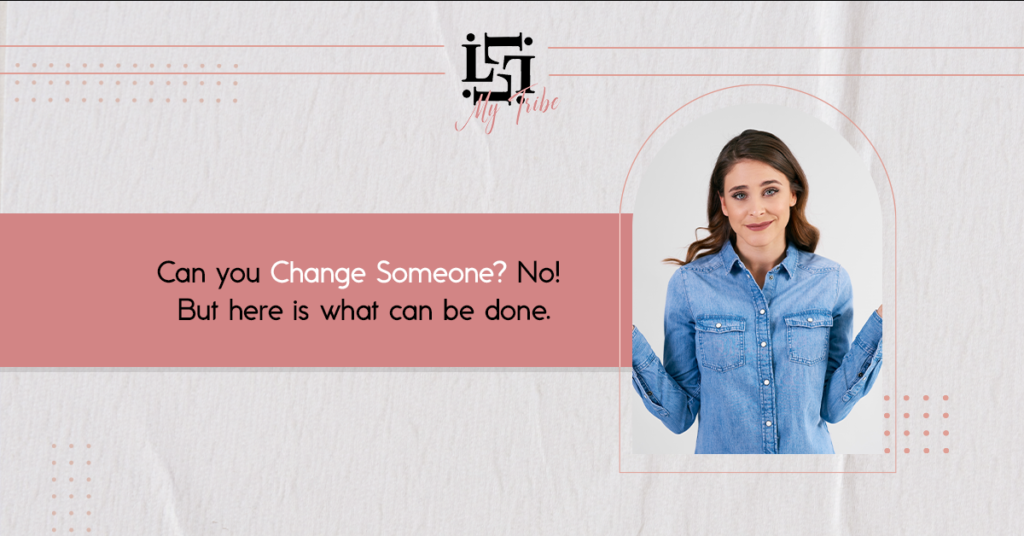When it comes to relationships—whether romantic, familial, or friendships—there’s often a question that arises: Can you change someone? Many of us have been there. You meet someone, and you see potential in them. Maybe they have habits or behaviors you don’t quite align with, and you start wondering if you can help them change. But is it realistic to believe you can change someone?
Let’s dive into this topic from a mental health perspective.
The Illusion of Control
One of the most common misconceptions in relationships is the belief that you can control or change another person. While it may be tempting to try to mold someone into the version of themselves you think they should be, the reality is that true, lasting change can only come from within.
People grow and evolve, but forcing that evolution is often a recipe for frustration. At its core, the desire to change someone else stems from a place of control, not love. True love is about acceptance, which doesn’t mean turning a blind eye to harmful behaviors, but rather supporting someone’s growth without demanding change to fit your ideals.
Change Starts from Within
Here’s the truth: people can change, but they will only do so if they genuinely want to. This applies to all kinds of change—whether it’s improving mental health, breaking bad habits, or developing emotional intelligence. The key factor is intrinsic motivation, not external pressure.
For instance, if a partner has a pattern of unhealthy behaviors—such as emotional unavailability or a tendency to avoid conflict—they may not be ready to confront and change those behaviors unless they acknowledge the issue themselves. Change requires self-awareness, a desire for growth, and a commitment to the process.
Supporting Someone’s Journey Without Pushing
While you can’t force someone to change, you can support their growth in meaningful ways. Here’s how:
- Model Healthy Behaviors: Often, the best way to inspire change is to lead by example. If you prioritize self-care, emotional vulnerability, and setting boundaries, the people around you may begin to follow suit.
- Create a Safe Space: Encourage open, non-judgmental communication. This allows people to reflect on their behaviors without feeling attacked or misunderstood.
- Encourage Personal Development: Suggest helpful resources like therapy, books, or workshops. However, it’s important to remember that your encouragement should be gentle, not forceful.
- Accept Their Pace: Even if someone is ready to change, it’s not going to happen overnight. Be patient and understand that growth is a gradual process.
When Change Isn’t Happening
What happens if someone isn’t willing or able to change? It’s important to assess how this impacts your mental health and well-being. If their behavior is negatively affecting you, it may be time to evaluate the relationship. Here are a few key things to consider:
- Boundaries: Setting boundaries is crucial when someone’s actions hurt you. Make it clear what you can and cannot tolerate. Check-in with yourself to ensure you are honoring your feelings.
- Self-Preservation: It’s okay to walk away from relationships that are toxic or emotionally draining. Sometimes, protecting your own mental health is more important than waiting for someone else to change.
- Acceptance: Accepting that you cannot change someone can be freeing. It releases you from the burden of trying to fix what is not yours to fix.
What You CAN Do Is Focus on Your Own Growth
The only person you have the power to change is yourself. Focusing on your own personal development, emotional intelligence, and self-care is the best thing you can do for any relationship. Sometimes, when you shift your focus inward, the people around you begin to change as well—not because you forced them to, but because they were inspired by your own growth.
So, can you change someone? The answer lies in whether they are willing to change. Rather than pouring your energy into fixing others, invest it into fostering healthy, supportive relationships where growth is a mutual, self-directed journey.

